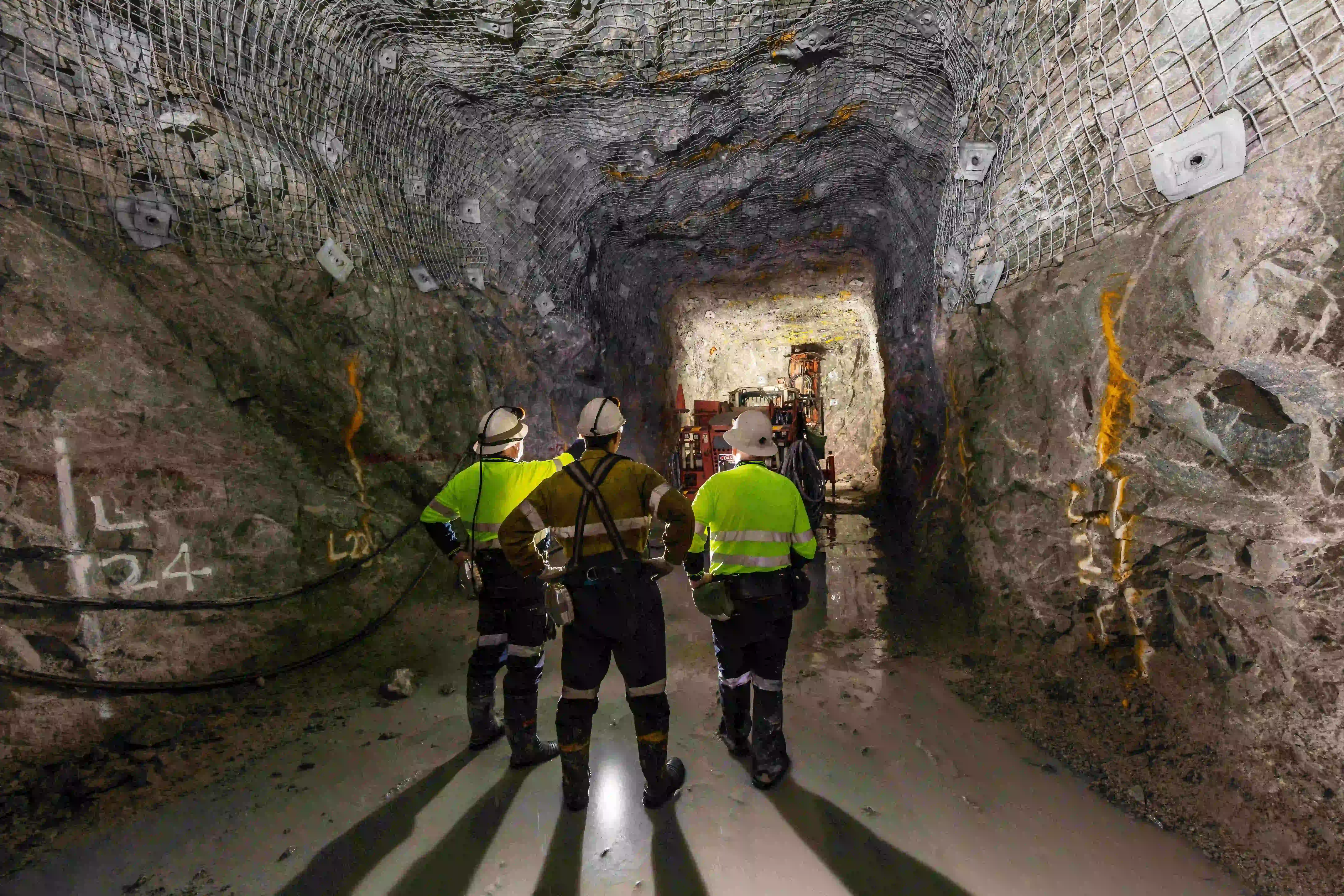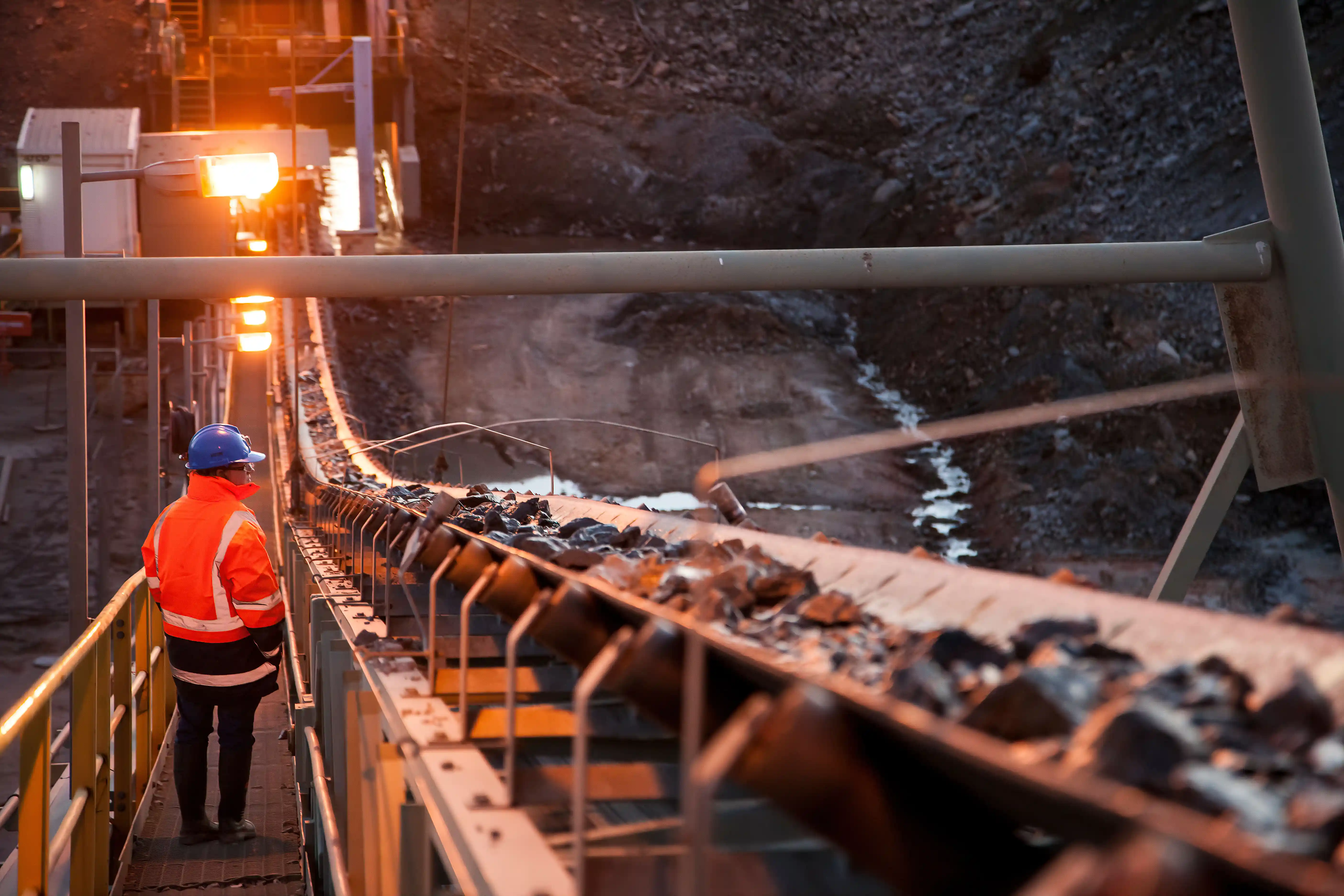Key Takeaways
- In the 2024 financial year, coal mining alone generated $85 billion towards Queensland’s economy (representing 17% of the Gross State Product) and employed 30,000 direct and 200,000 indirect FTE workers. Comparatively in the same period, Oil & Gas contributed $17 billion (3% of GSP) with a workforce of 5,000 direct and 40,000 indirect employees, whilst other metal and mineral mining produced $18 billion (3% of GSP) with 14,000 direct and 47,000 indirect workers.
- The Coal Mine Workers Health Scheme mandates regular health assessments, including respiratory and lung function tests, to ensure worker safety.
- The Coal Mining Safety and Health Regulation ensures legal compliance, holding employers and employees accountable for workplace safety.
- 4cRisk conducts comprehensive health assessments using RSHQ's ResHealth platform, ensuring compliance with regulations and protecting worker health.
Coal Mining's Contribution to Queensland's Economy and Workforce
According to the Queensland Resources Council, the mining industry plays a crucial role in Queensland's economy, contributing $120 billion, or 24% of the state's total economic output. The coal mining industry alone represents 17% of Queensland’s Gross State Product (GSP), providing over 30,000 direct and 200,000 indirect jobs to Queenslanders across 58 operational coal mines in 2024. To ensure the well-being of these workers, regular medical assessments are compulsory, helping them stay healthy, safe, and able to perform their roles effectively.
The physically demanding nature of mining, combined with its inherent risks and remote locations, makes worker health and safety a top priority. Extensive safety protocols and regular health assessments are essential to ensure their well-being. The Coal Mine Workers Health Scheme, previously known as the Queensland Coal Board Medical, plays an important role in these efforts. By prioritising early detection and management of potential health risks, this scheme promotes a safer working environment and healthy employees, ultimately supporting the sustainability of Queensland’s coal mining industry.
What Is the Coal Mine Workers Health Scheme?
The Coal Mine Workers’ Health Scheme ensures that Queensland coal mining workers are medically fit to perform their roles safely. Established under the Coal Mining Safety and Health Regulation, the scheme aims to identify and manage health risks associated with coal mining activities, particularly respiratory conditions.
Participation is mandatory for all workers entering Queensland’s coal mining industry. This ensures their health is monitored through periodic medical assessments, which typically include chest X-rays, spirometry, and other relevant health checks. These evaluations help protect workers' well-being throughout their mining careers.
Legal and Regulatory Framework
The Coal Mining Safety and Health Regulation 2017 builds on the foundational Coal Mining Safety and Health Act 1999, outlining the Queensland government's legal requirements to protect the health and safety of coal mine workers. This framework mandates strict standards for identifying, managing, and mitigating risks associated with coal mining activities.
The Department of Resources oversees the regulation of health and safety in the mining industry. It ensures compliance through inspections, audits, and guidance and aims to uphold a safe working environment for all employees.
Mandatory compliance applies to both employers and employees. Under the Coal Mine Workers' Health Scheme, employers are required to implement health and safety systems, provide necessary training, and conduct regular health assessments. Employees must follow safety protocols, report hazards, and participate in scheduled health assessments. Together, these measures ensure a collaborative effort to maintain the highest safety standards across the industry.

Components of the QLD Coal Mine Workers Health Scheme
The QLD Coal Board Medical is a comprehensive health assessment conducted by a medical professional. It is designed to ensure coal mine workers are fit for their roles and safe in the workplace. The health assessment process generally includes the following:
Medical & Occupational History
Workers provide detailed information about past illnesses, surgeries, medications, and family medical history to identify potential health risks. A detailed occupational history including mines, roles, and exposures is requested.
Physical Examination
Routine checks are performed to assess overall physical health, including blood pressure, weight, height, and vision.
Hearing Test
Given the noisy and safety critical mining environment, hearing tests are essential to detect early signs of hearing loss.
Respiratory Screening
This screening focuses on lung health, symptoms, and lifestyle factors.
Lung Function Test (Spirometry)
Spirometry measures lung function to detect early signs of lung conditions caused by dust exposure, ensuring early intervention and treatment.
Chest X-rays
Chest X-rays screen for pneumoconiosis such as black lung disease which can develop from prolonged exposure to coal dust.
Drug and Alcohol Screening
While not compulsory, this screening is conducted according to the employer’s policies to identify substance abusers and ensure a safe and compliant workplace.
The Rise of Mine Dust Lung Disease
In Australia, there has been a rising number of cases of Mine Dust Lung Diseases (MDLD), including Coal Workers’ Pneumoconiosis (CWP) and Mixed Dust Pneumoconiosis (MDP), making early screening more important than ever. These conditions result from prolonged exposure to fine coal dust, with CWP often developing over decades. Early detection is crucial for receiving treatment and protecting long-term health.
Under the Coal Mine Workers’ Health Scheme, periodic respiratory health checks are mandatory, and employers cover the costs. Retired workers may also qualify for free respiratory screenings, funded by RSHQ, which include reasonable travel and accommodation expenses. Proactive screening safeguards workers’ long-term health in light of increasing diagnoses.
Workers nearing retirement with at least three years of industry experience are entitled to an employer-funded exit assessment, including respiratory screening. Diagnosed workers can access workers’ compensation for medical expenses, wage loss, counselling, rehabilitation, and potential lump-sum payments if diagnosed with a respiratory illness.
For more information, Resources Safety & Health Queensland has developed a Mine Dust Lung Disease Worker Information Booklet to help workers understand the disease and prevention methods.
How Often are Health Assessments Required?
In Queensland, coal mine workers are required to undergo compulsory health assessments before employment and periodically thereafter, with a full assessment every five years. These regulations specify that employees must undergo a health assessment:
- Before starting work: All new employees must complete a health assessment report before beginning employment.
- When changing employers: A new health assessment is required when switching workplaces.
- Periodically: Health assessments are scheduled by the employer's appointed medical advisor (AMA) but must occur at least once every five years.

Importance of the Coal Mine Workers Health Scheme for Workplace Safety
The Coal Mine Workers Health Scheme plays an important role in maintaining workplace safety by identifying health risks early. 4cRisk Appointed Medical Advisors have detected early-stage lung issues in a number of workers and this early intervention not only protected the worker’s immediate health but also reduced the risk of long-term complications. By identifying health concerns early, the medical advisor helps prevent more serious conditions, safeguarding the worker’s quality of life and minimising potential impacts on their career and the wider workforce.
Don't Cut Corners When It Comes to Coal Mine Workers' Health
Professional medical assessments aligned with the Coal Mine Workers' Health Scheme are essential for ensuring the safety and health of workers in Queensland’s coal mining sector. These assessments help identify potential health risks early, such as respiratory issues and other conditions, ensuring workers remain fit for their roles.
By prioritising health through regular screenings, workers can prevent serious long-term health problems, contributing to a safer and more productive workplace. All workers and employers must comply with medical requirements and take proactive steps to safeguard their health for personal well-being and workplace safety.
Trust 4cRisk for Coal Mine Worker's Health Assessments
Stay compliant with the coal industry medical requirements with 4cRisk. Our appointed medical advisors use RSHQ's ResHealth platform to complete all Coal Mine Worker assessments, ensuring your team’s health and safety.


